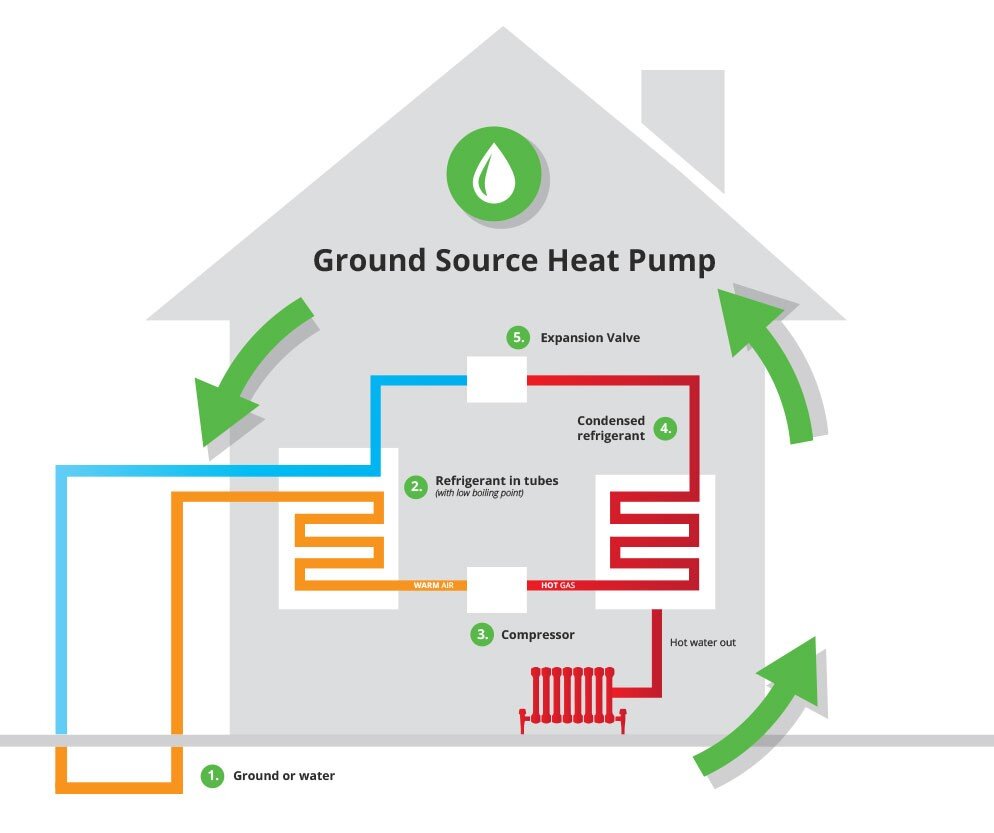Ground Source Heat Pumps
Water and Ground Source Heat Pumps offer an efficient alternative to conventional gas, oil, coal or electric storage heating systems, drawing heat from the ground or from a natural water source.
As a renewable heating alternative to fossil fuels, Water and Ground Source Heat Pumps can not only potentially save you money on your fuel bills, but you could also receive Government funding from the Renewable Heat Incentive (RHI) and cut your household’s CO2 usage.
How do water/ground source heat pumps work?
1. Heat extraction
Heat is extracted from the ground/water.
2. Evaporator
The heated air is then passed through an evaporator which heats liquid refrigerant.
3. Compressor
The liquid refrigerant is then compressed, turning the liquid refrigerant into gas.
4. Hot gas
The heat is extracted from the hot gas into water which then feeds into your heating system.
5. Cycle begins again
The now cool gas turns back to a liquid and the cycle begins again.
What are the benefits of water/ground source heat pumps?
• Very high efficiencies because the ground temperature remains more constant than air
• Unobtrusive due to all external pipework being buried and main system components being internal
• On a well-designed heating system with under-floor heating and a brine temperature of 0oC, ground source heat pumps can reach efficiencies of up to 5.0kW of heat for every 1kW of electricity used. This is known as the COP (Coefficient of Performance). Electric storage heaters have a COP of 1kW of heat to every 1kW of electricity used.
• Can be used with radiators and under-floor heating systems
• Only one fuel bill is required for your home as they only require electricity to run
• Very reliable as there are no hot burners required
• Renewable Heat Incentive (RHI) funding available


